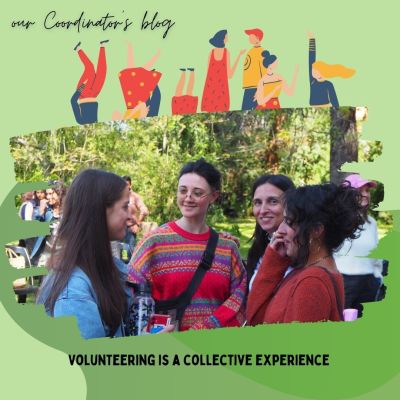"¡Sonamos muchachos! ¡Resulta que si uno no se apura a cambiar el mundo, después es el mundo el que lo cambia a uno!" “We’ve had it, boys! It turns out that if you don't hurry to change the world, it's the world that changes you!”
You may have seen this little dark haired girl around Buenos Aires, perhaps in San Telmo, or in the the Subte stop ‘Lima’. But, if you haven’t had a chance to meet her yet, we formally introduce you to Argentina’s beloved Mafalda.
Created by the Argentine cartoonist Quino (pseudonym of Joaquín Salvador Lavado), Mafalda is a comic strip that ran between 1964 and 1973. It is about an spirited 6 year old girl who cares deeply about the state of humanity, is on a mission for world peace and hates soup. She persistently baffles her parents by questioning them about complex and ‘grown-up’ ideas, such as communism in China, and will always take the side of the underdog.
Quino created the lively young lady for socio-political motives, using a comical take on a child’s imagination. Nevertheless, the comic was never closely based on the current events at the time of publication.
Mafalda’s conscientiousness and direct nature made her an immediate hit in Latin America and parts of Europe. In fact, Quino believed the strip never had much success with the English speaking population because it was too Latin America. Despite this innate Latin American quality, the depth, clarity and humor of Quino’s words mean we can all learn a little from Mafalda.
Here are some of her most famous lines:
“¿Por donde hay que empujar este país para llevarlo adelante?”
“Where do you have a push this country to make it move forward?”
"Y, claro, el drama de ser presidente es que si uno se pone a resolver los problemas de estado no le queda tiempo para gobernar.”
“And, of course, the issue with being president is that if you try to resolve the problems with the state, there’s no time to govern.”
“La vida es linda, lo malo es que muchos confunden lindo con fácil.”
“Life is beautiful, the problem is that so many people confuse beauty with simplicity.”
“La cosa es tomar lo artificial con naturalidad”
“The idea is to take artificiality with naturalness”
"Como siempre: lo urgente no deja tiempo para lo Importante."
“As always: the most urgent things don’t leave time for the most important”
"No es cierto que todo tiempo pasado fue mejor. Lo que pasaba era que los que estaban peor todavía no se habían dado cuenta..."
“It’s not true that the past was better. What happened was that those who were getting worse still hadn’t realised”
“Comienza tu día con una sonrisa y verás lo divertido que es ir por ahí desentonando con todo el mundo”
“Start your day with a smile and you will see how fun it is to go around and be at odds with the world”
"Paren al mundo, que me quiero bajar"
“Stop the world, I want to get off”
¿Pensaron alguna vez que si no fuera por todos nadie sería nada?
“Have you ever thought that if it wasn’t for everyone, nobody would be nothing?”
“El problema de las mentes cerradas, es que siempre tienen la boca abierta!”
“The problem with closed minded people, is that they always have their mouth open!”




